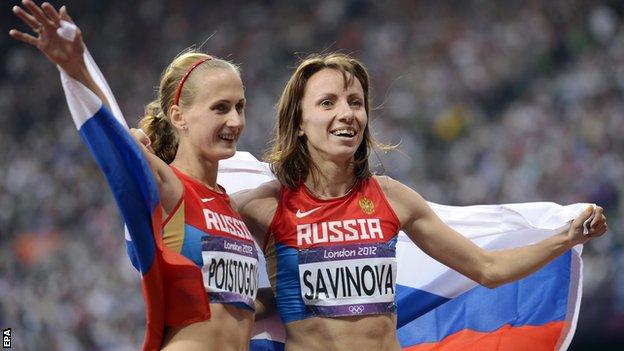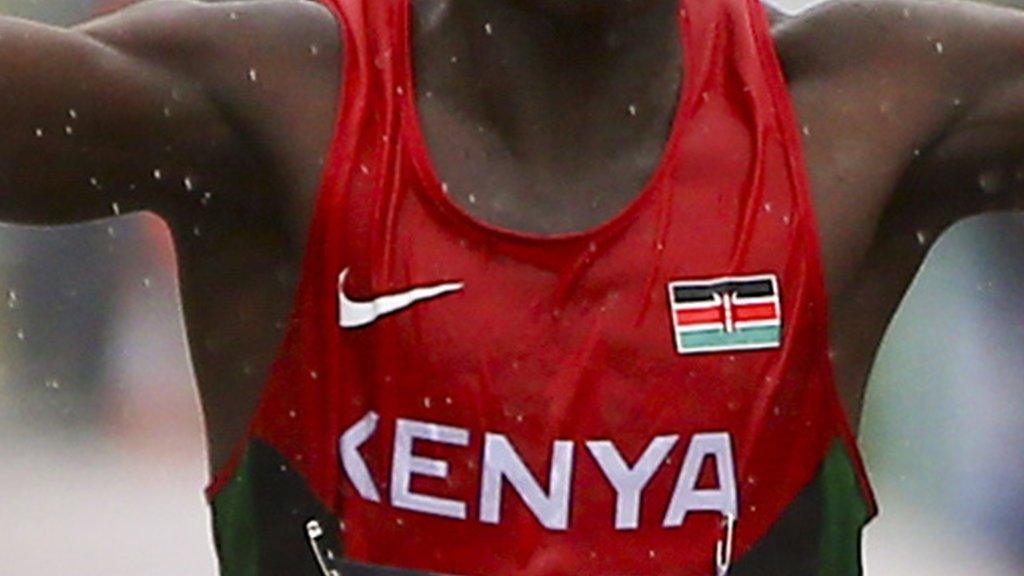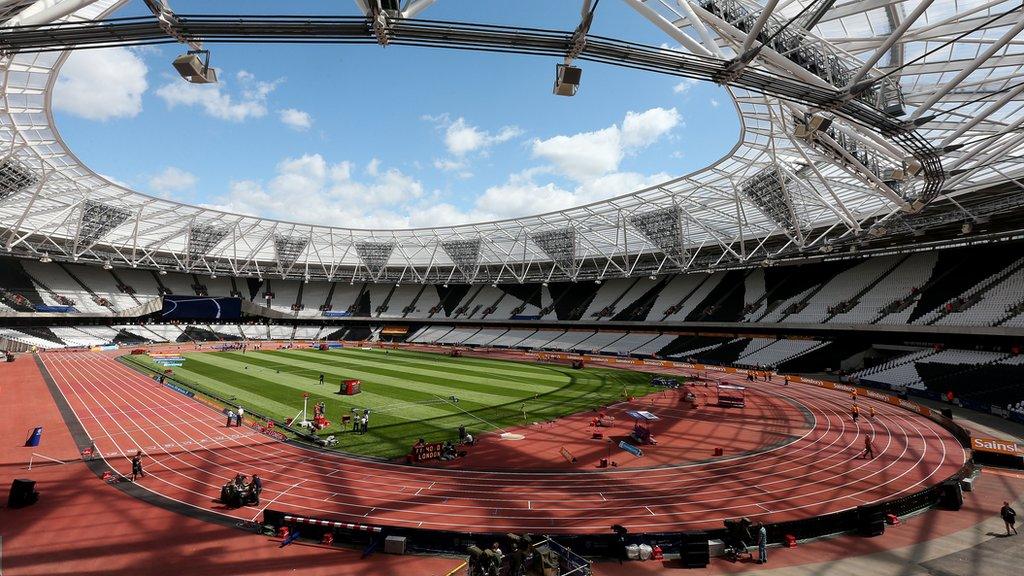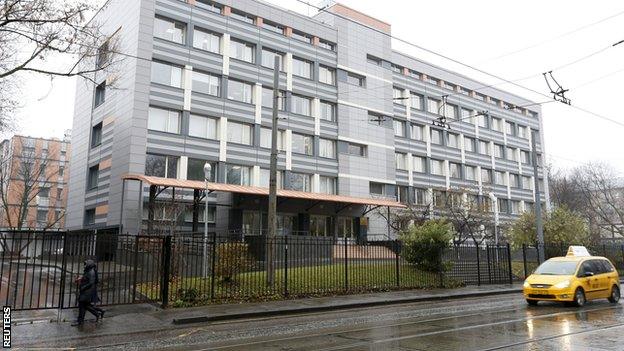Russia to unveil anti-doping reforms in race for Rio 2016 return
- Published

Russian athletes Ekaterina Poistogova and Mariya Savinova, who came third and first respectively in the women's 800m final at London 2012, were recommended for a lifetime ban in Wada's November report
Russia is to announce a range of reforms designed to restore trust in its scandal-ridden anti-doping agency, BBC Sport has learned.
The country hopes the measures will see its international athletics ban lifted.
All Russian track and field athletes intending to compete in August's Rio Games will undergo a minimum of three independent anti-doping controls.
These will be carried out by the sport's governing body, the IAAF, in addition to existing anti-doping steps.
BBC Sport has learned two independent international experts will also be granted full access to the Russian anti-doping agency (Rusada) in Moscow from the end of April.
The experts - nominated by the World Anti-Doping Agency (Wada) - will be tasked with ensuring the Russian anti-doping system is free of any interference and is fully independent.
"Russia is implementing all necessary reforms," said Russia's Minister of Sport Vitaly Mutko. "We are 100% supportive of Wada's efforts, alongside the International Olympic Committee (IOC) and IAAF, to stamp out cheating."
Russia's athletics federation was suspended by the IAAF, external in November last year after being accused of "state-sponsored" doping.
According to a Wada commission report, the London 2012 Games were "sabotaged" by Russian dopers and the country's security services were involved in the large-scale doping programme.
Moscow lab officials were also found to have been responsible for the "malicious destruction" of 1417 samples, while a follow-up report by the commission found evidence that the cheating was linked to corruption at the highest levels of the IAAF.
Rusada - and its Moscow laboratory - were subsequently found non-compliant with international anti-doping standards and lost their accreditation.
Richard Conway reports from Monaco where the IAAF met
Last month, the IAAF said Russia had made "considerable progress" but there was "significant work to be done".
A German documentary by ARD claimed a suspended Russian coach was still working with elite athletes.
Concerns about Russian cheating also extend beyond track and field.
At the weightlifting World Championships in December, four Russians were among 17 lifters suspended after drug tests. They included three gold medalists.
Wada is also investigating allegations of systemic doping in Russian swimming.
As for its athletes, Russia will find out by early June whether it can send a team to the Olympic Games.
Senior Rusada management were replaced in December as the agency tried to convince the world it could be revamped.
Now an independent supervisory board, which met for the first time last week, has agreed the new measures.
"The first meeting of the board and the presence of these independent experts are a key part of this road map," Mutko said.
"Clean athletes' dreams must not be allowed to be destroyed because of other people's mistakes. This is an important step."
In recent months, UK Anti-Doping (Ukad) has taken control of drug-testing in Russia while Rusada remains non-compliant with Wada's code.
"We are urgently working to ensure sport in Russia is clean and fair," Natalia Zhelanova, the Russian government's anti-doping adviser, told the BBC.
"We very much hope that this effort will be recognised by the IAAF and by the international sports community as a whole, so that Russian athletes can compete at the Rio 2016 Olympic and Paralympic Games.
"We understand that we have to regain the international community's trust. We have nothing to hide. We are being totally transparent and I am confident we can get to a position where Russian sport is trusted once again."
- Published22 April 2016

- Published19 April 2016

- Published15 April 2016
